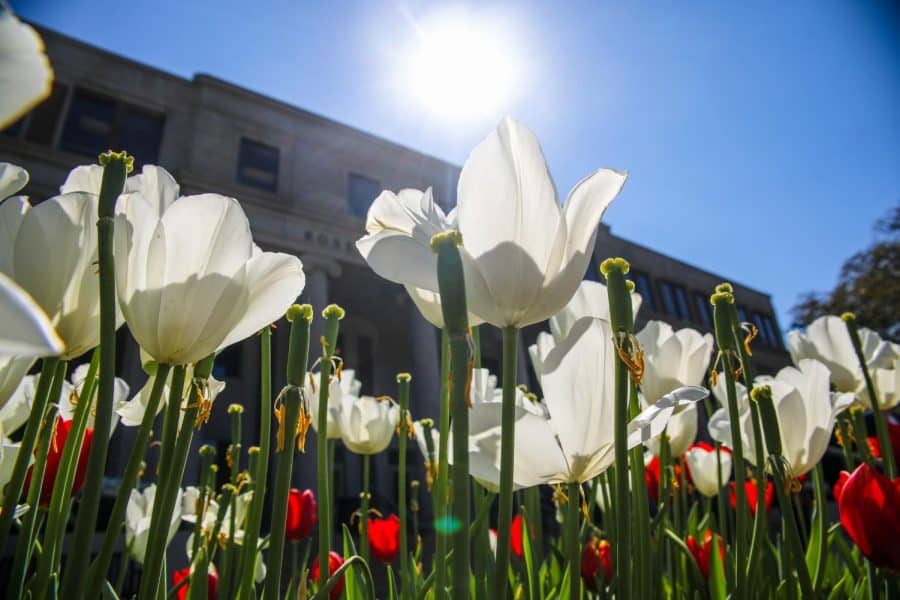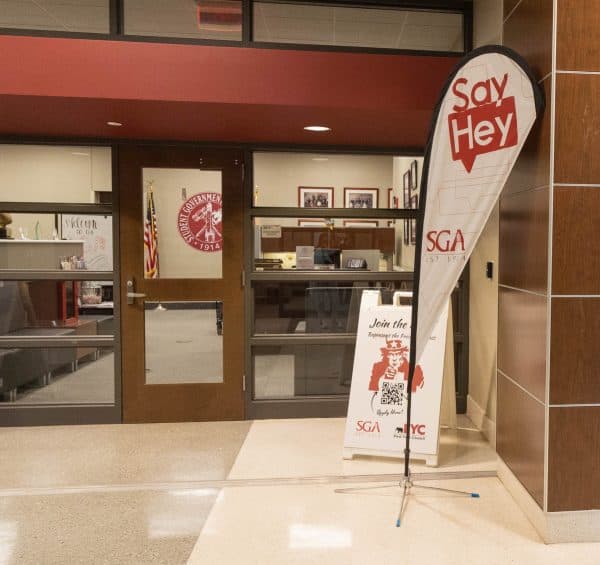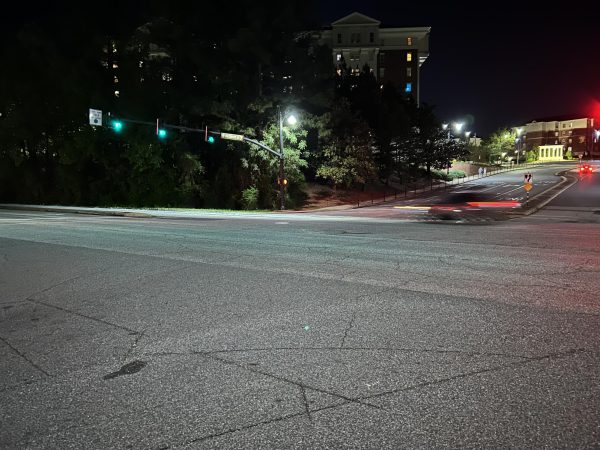College admissions scandal propels talk of inequities
April 4, 2019
Carolyn Adams, a UA sophomore studying international relations and political science, was on the varsity swim team for four years, sang in an acapella group, volunteered in Honduras, took 10 AP classes, had a 35 ACT score and was the valedictorian of her high school class.
Adams applied to big-name schools like Princeton, Harvard, Duke, Vanderbilt and The University of North Carolina at Chapel Hill. She was waitlisted, deferred or denied from all of them.
As of early March, federal prosecutors have charged 33 ultra-wealthy parents of bribing coaches and university officials to admit their children into elite universities, including celebrities like Lori Loughlin and Felicity Huffman, in what’s been deemed the college admissions scandal. The scandal revealed the effects of wealth and privilege on college campuses, and those effects are felt by students like Adams.
“What if Olivia Jade [Laughlin’s daughter] applied to Princeton and paid all that money to get in?” Adams said. “That could’ve been my spot. It speaks to the corruption of the system as a whole.”
According to AL.com, at The University of Alabama, a report funded by the Joyce Foundation found that state schools are not becoming any more racially or socioeconomically diverse through recruiting visits. Recruiters, especially at the University, focus on out-of-state students and private school students in affluent areas and ignore schools in the Black Belt region of the state and other rural areas.
According to The New York Times, 59% of UA students come from the top 20% of income earners.
Amongst the top 20% of income earners is Olivia Jade, social media influencer and daughter of Loughlin and Mossimo Giannulli. Loughlin and Giannulli were arrested and released on a $1 million bond for a bribing scheme to guarantee their daughter’s admission into the University of Southern California. They bribed William Singer, who helped fake test scores and posed Jade as a recruit for the USC crew team.
“I don’t know how much of school I’m going to attend,” Jade said in a Youtube video. “But I do want the experience of, like, game days, partying. I don’t really care about school, as you guys all know.”
Explicit bribes are not the only way the wealthy get their children into universities. Some make large donations. According to NBC, Dr. Dre came under fire on Instagram after posting about his daughter’s acceptance to USC after he donated $70 million.
Students with wealthy parents get into elite schools in a variety of ways, such as donations, like Dr. Dre did, legacy admissions, which elite universities have the highest amount of, according to Investment News, and hiring college consultants.
“It’s definitely disappointing,” said Caroline Lisko, a freshman majoring in Italian and astrophysics. “I want to say I’m surprised, but I mean a lot of people knew that there is a pull that you can have if you’re an alumnus or whatnot.”
Trevor Stewart, a sophomore at The University of Alabama in Birmingham majoring in marketing, is from Triana in Madison County, Alabama. While Madison County as a whole is 24% African American, Triana is 69% African American, and 21% of Triana residents live in poverty. Students in Triana are in the Madison City Schools district, despite not living in the Madison area, with bus rides as long as 90 minutes for some Triana students.
“Consider how HBCUs started,” Stewart said. “At one point, black people couldn’t go to these [PWI] schools, not because of their lack of scholarship and academia, they just did not have that privilege. There are still consequences and subtle effects as a result of that privilege. So I think privilege is very real, especially in the collegiate world.”
Legacies are students who have familial connections to certain institutions, and Stewart said this can heavily influence the admissions process.
“There are certain things that legacies have not just in terms of access to scholarships and organizations, but also just knowledge,” Stewart said. “They probably know how the admissions process goes. To have someone with you who has been through this process, to have someone with you that knows and can relate, it just demonstrates the privilege and the disparity between those who are legacies and parents with first-generation students when they’re trying to figure these things out for themselves.”
With college acceptance rates dropping to record lows, more and more schools are increasing their percentage of students in the top 20% of income earners, while reducing the number of students in the lowest 40%, according to AL.com.
Will Southwick is a member of the crew team at Washington University in St. Louis (WashU). WashU ranks No. 1 in having the highest income earners, according to the New York Times, showing that more of their students come from the top 1% than the bottom 60%.
Southwick was recruited for the WashU crew team after rowing since he was in eighth grade.
The recruiting process, Southwick said, is that a student-athlete will reach out to teams he or she likes and talk to the coaches. Their transcript will be sent to the admissions office, which will determine if that student is qualified academically for the school. If they are, the coach will let the admissions office know they are a serious athlete and that the athlete should be at the school. That is usually enough to get a student in. WashU is a Division III school, while USC is a Division I school, so the recruitment process may vary.
While many are surprised by how individuals got away with the scandal for so long, Southwick said he gets why someone would do it, as it’s not that inconceivable.
“When I was applying to schools, I never submitted footage,” Southwick said. “I submitted race results they could look up, but I don’t think any coaches actually did.”
Southwick said he isn’t personally angered by the scandal, but he acknowledges that the repercussions of falsely recruiting a student like Jade could be detrimental to the team.
“If I was on that team, I could see myself being mad about it,” Southwick said. “The team spending your recruitment spot on somebody, and then that somebody not actually being a rower would be an annoying thing. There are only so many of those spots that your admissions office would actually listen to, so it’s kind of suspicious. You want to put out a good boat, and a lot of programs have eight admission spots for the eight rowers in the boat. If one of those people ended up not being a rower, it would be really difficult for that boat to actually row.”
Giannulli had Jade pose on a rowing machine, without ever actually using it, to uphold the facade of her being a USC rowing recruit.
Elite schools like USC, WashU and Princeton have all been scrutinized for their lack of economic and racial diversity.
In “The Privileged Poor,” author Anthony Abraham Jack discussed the issues poor students face on an overwhelmingly wealthy campus, which includes feeling out of place and experiencing culture shock and isolation from their peers.
“I feel like everyone is trying very hard to fit into the broke-college-student mold, even if they aren’t, so it’s hard to tell who really has money and who doesn’t,” Stewart said.
While Loughlin is out of jail on a $1 million bond and, according to USA Today, Jade remains enrolled at USC, the repercussions of the scandal still linger on college campuses everywhere.
“I am very big into meritocracy – the idea that you earn your position based upon your qualifications,” Adams said. “I think it all boils down to you can’t really quantify how many people may have gotten in just because wealthier people paid their kids’ way in. I think that’s also a bad reflection on the schools themselves that they will not hold themselves to the academic standards that they promote.”











